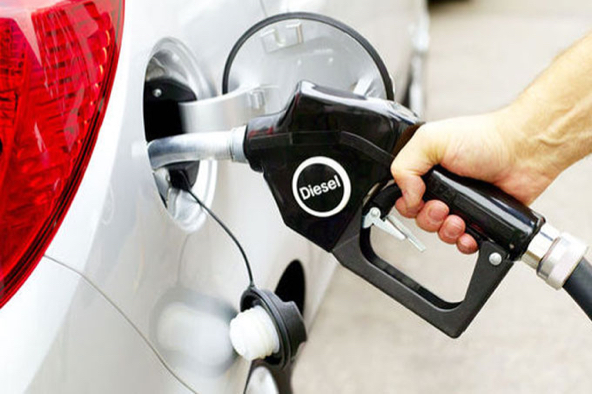Government admits diesel has future 16 | 05 | 2018

DIESEL CARS HAVE a future in Britain. No, that’s not me speaking; it’s now an official stance by the Government. Surprised? Probably not by the statement, but certainly that the Government has finally woken up to how clean and necessary modern diesel are to the economy and running of the UK. (Related: Scots face 2032 petrol/diesel cut-off)
Following the Government’s announcement of its intentions to ban the sale of new petrol and diesel cars from 2040 — interestingly, 2032 in Scotland — and the ‘demonisation’ of diesel in the wake of both the new plan and Dieselgate, the automotive industry has been united in fighting the corner for diesel.
Now the Government, currently working on a white paper titled 'Road to Zero', which will outline a policy framework for managing road transport emissions towards zero by 2035/40, has finally admitted publicly that diesel does, indeed, have a future for some drivers.
“There is a place for diesel,” Secretary of State for Business, Energy and Industrial Strategy, Greg Clark, told the FT Future of the Car Summit 2018. “City centres are a flashpoint. Driving diesel a long distance is a different question. New generation diesel can make a big contribution to reducing emissions.
Related: Scotland charges ahead with EVs
"I would expect the contribution of the higher standards of efficiency and emissions performance of diesel engines to continue to drive improvements in air quality and our greenhouse gas performance.
“It would be the wrong decision for people to think that holding on to an existing diesel vehicle, rather than upgrading to a much more environmentally-friendly new one, is a good step for the planet. We will, throughout our report, stress that.
"There’s a place for diesel vehicles and there will be for some time to come. If you’re driving a diesel-powered car long distances, then that’s a very different impact than in the city.
“So we need to make sure people make the right choices for the environment and for their own use. What we’ll set out in the report we’re going to publish is how different choices may be right for different people in different circumstances."
Really? How many people in Whitehall, and after spending goodness knows how much money on ‘research’, has it taken to come to that conclusion? A conclusion that anyone in the automotive industry could have told them years ago. It’s not rocket science.
Related: UK to ban sales of new petrol and diesel cars from 2040
Of course we should expect diesel bans in high-pollution hotspots, like congested, built-up towns and cities, but for drivers travelling long distances — more likely than not on motorways — modern diesels have a huge role to play.
Interestingly, Clark’s advice flies in the face of that from Transport Secretary Chris Grayling, who said last year that motorists should "think twice” before buying another diesel car. Another example of joined-up thinking at Westminster? Hmmmm … I don’t think so.
What’s also significant is the rules rumoured to be in the 'Road to Zero' will prohibit the sale of new cars from 2040 that are incapable of travelling for 50 miles or more on battery power alone. In addition to stopping the sale of regular petrol and diesel cars, that would also include current conventional hybrids such as the Toyota Prius.
Of course, it’s likely that by 2040, plug-in hybrid (PHEV) technology will have improved enough to meet the 50-mile target.
And while the Government has yet to confirm the new 50-mile rule, according to the Financial Times “three people involved in the decision” have confirmed this detail.
Related: SMTA — Budget "failed to deliver"
Keep up-to-date with all the latest news by following us on twitter.com/Scotcars
Jim McGill